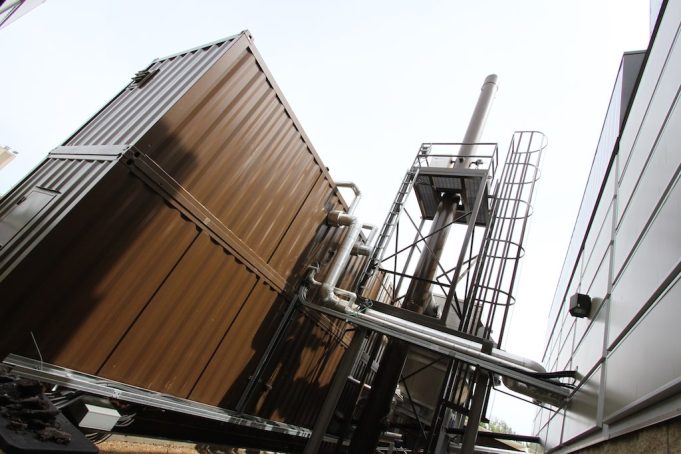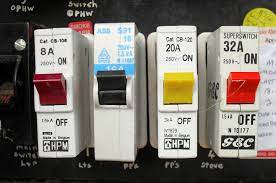Biomass boilers are emerging as a key technology in the move towards sustainable and renewable energy sources. They represent a shift from traditional fossil fuel-based heating systems to a more environmentally friendly approach, using organic materials to produce heat. In this guide, we’ll explore what biomass boilers are, how they work, their benefits, and some considerations to keep in mind if you’re thinking of investing in one.
What Are Biomass Boilers?
Biomass boilers are heating systems that use organic materials—collectively known as biomass—to generate heat or steam. These boilers can be used for various applications, including residential heating, commercial and industrial processes, and even power generation. The biomass used can come from a variety of sources, such as wood pellets, wood chips, agricultural waste, or other organic byproducts.
The underlying principle of biomass boilers is simple: burning organic material releases energy in the form of heat. This heat is then used to warm water, which can be distributed through radiators, underfloor heating systems, or other methods to provide warmth. Biomass boilers can be designed for various scales, from small residential setups to large industrial operations. Wouldn’t it be interesting to explore the full range of applications for these boilers?
How Do Biomass Boilers Work?
Biomass boilers operate by burning biomass fuel to produce heat. The heat generated can then be used in several ways, depending on the system’s design. Here’s a basic breakdown of how a typical biomass boiler works:
- Fuel Storage: Biomass boilers require a consistent supply of fuel, which is stored in a hopper or silo. This storage area holds the biomass and feeds it into the boiler as needed.
- Fuel Feeding: The biomass is automatically fed into the combustion chamber, where it is burned to generate heat. The feeding system ensures a steady and controlled flow of fuel to maintain the desired temperature.
- Combustion: In the combustion chamber, the biomass is burned at high temperatures. This process releases energy in the form of heat, which is then transferred to water or air.
- Heat Transfer: The heat generated from combustion is used to warm water or air. In a hot water system, the heated water circulates through pipes to provide warmth to buildings or other applications. In a steam system, the heat creates steam, which can be used for industrial processes or power generation.
- Emissions Control: Modern biomass boilers often include emissions control systems to reduce pollutants such as particulate matter and nitrogen oxides. This helps ensure compliance with environmental regulations and minimizes the environmental impact.
Benefits of Biomass Boilers
Biomass boilers offer several significant benefits, making them an attractive option for those seeking sustainable heating solutions. Let’s explore some of these advantages.
Renewable and Sustainable
Biomass is a renewable resource, meaning it can be replenished through sustainable practices. This makes biomass boilers a more sustainable alternative to fossil fuel-based systems. By using organic materials like wood or agricultural waste, biomass boilers help reduce reliance on non-renewable resources.
Carbon Neutrality
One of the key environmental benefits of biomass boilers is their carbon neutrality. Although burning biomass releases carbon dioxide, the plants used to create the biomass absorb carbon dioxide during their growth. This creates a balance that helps offset the carbon emissions, leading to a smaller carbon footprint compared to traditional heating systems.
Cost-Effectiveness
In many cases, biomass fuel is more cost-effective than fossil fuels, especially when sourced locally. This can lead to significant savings on energy costs over time. Additionally, governments and local authorities often offer incentives or grants for installing biomass boilers, further reducing the cost.
Energy Independence
Biomass boilers can contribute to energy independence by reducing reliance on imported fossil fuels. By sourcing biomass locally, communities can create a more sustainable and self-sufficient energy supply. This local approach can have long-term benefits for energy security and economic stability.
Considerations for Biomass Boilers
While biomass boilers offer many benefits, there are also some considerations and challenges to keep in mind. Here are a few key factors to consider when evaluating biomass boilers.
Fuel Storage and Handling
Biomass boilers require a consistent supply of biomass fuel. This means having adequate storage space for the biomass and ensuring a reliable supply chain. Depending on the scale of the system, you might need a large hopper or silo to store the fuel. Would your location have the space and infrastructure to accommodate such storage requirements?
Environmental Impact
Although biomass boilers are considered carbon-neutral, they can still produce emissions like particulate matter and nitrogen oxides. It’s crucial to ensure that the boiler has proper emissions control systems to minimize environmental impact. Additionally, sourcing biomass sustainably is essential to maintain the carbon-neutrality aspect.
Maintenance and Operation
Biomass boilers require regular maintenance to ensure efficient operation and to reduce emissions. This maintenance includes cleaning, servicing, and monitoring the fuel feeding system. Proper operation is critical to ensure safety and compliance with regulations. Are you prepared to commit to the necessary maintenance for a biomass boiler system?
Initial Cost and Infrastructure
The initial cost of installing a biomass boiler can be higher than traditional heating systems. However, the long-term savings on fuel costs and potential incentives can offset this initial investment. Additionally, biomass boilers might require specific infrastructure, such as storage facilities and specialized feeding systems. Would you be willing to invest in this kind of infrastructure for a more sustainable heating solution?
Is a Biomass Boiler Right for You?
Biomass boilers can be a fantastic solution for those seeking sustainable and cost-effective heating options. They offer a renewable alternative to fossil fuel-based systems, contribute to carbon neutrality, and can support local economies. However, it’s essential to consider factors such as fuel storage, maintenance, and initial costs when deciding if a biomass boiler is the right choice for you.
If you’re interested in exploring biomass boilers further, consider consulting with experts in the field. They can help you assess your specific needs, evaluate the available options, and guide you through the installation process. Wouldn’t it be great to discover a heating solution that aligns with your sustainability goals and reduces your environmental impact?
In conclusion, biomass boilers represent a significant step towards a more sustainable energy future. By utilizing renewable resources and promoting energy independence, these boilers can play a crucial role in reducing carbon emissions and supporting a greener planet. Let’s keep exploring the possibilities of biomass heating and discover how it can fit into your energy strategy.
Apart from this, if you are interested to read an amazing article on World of Kokoa TV, then visit our tech category.












